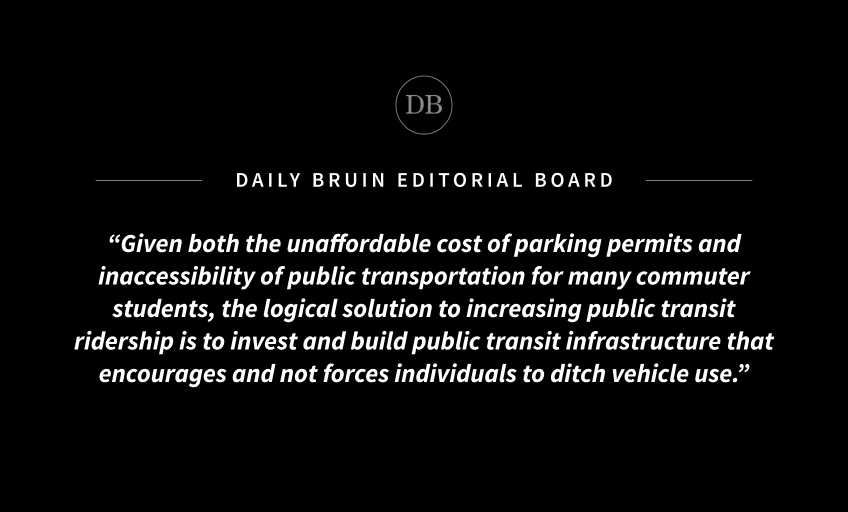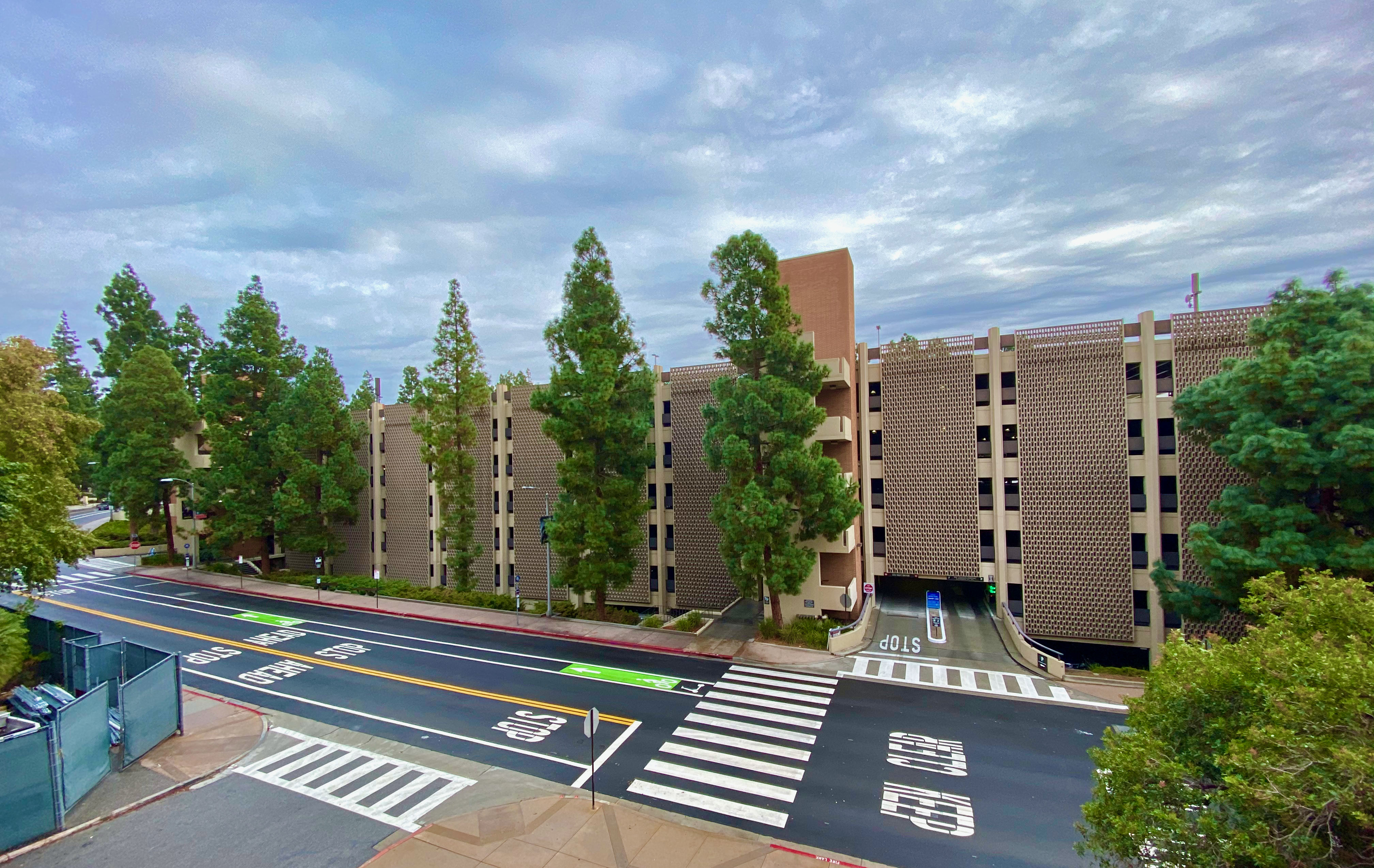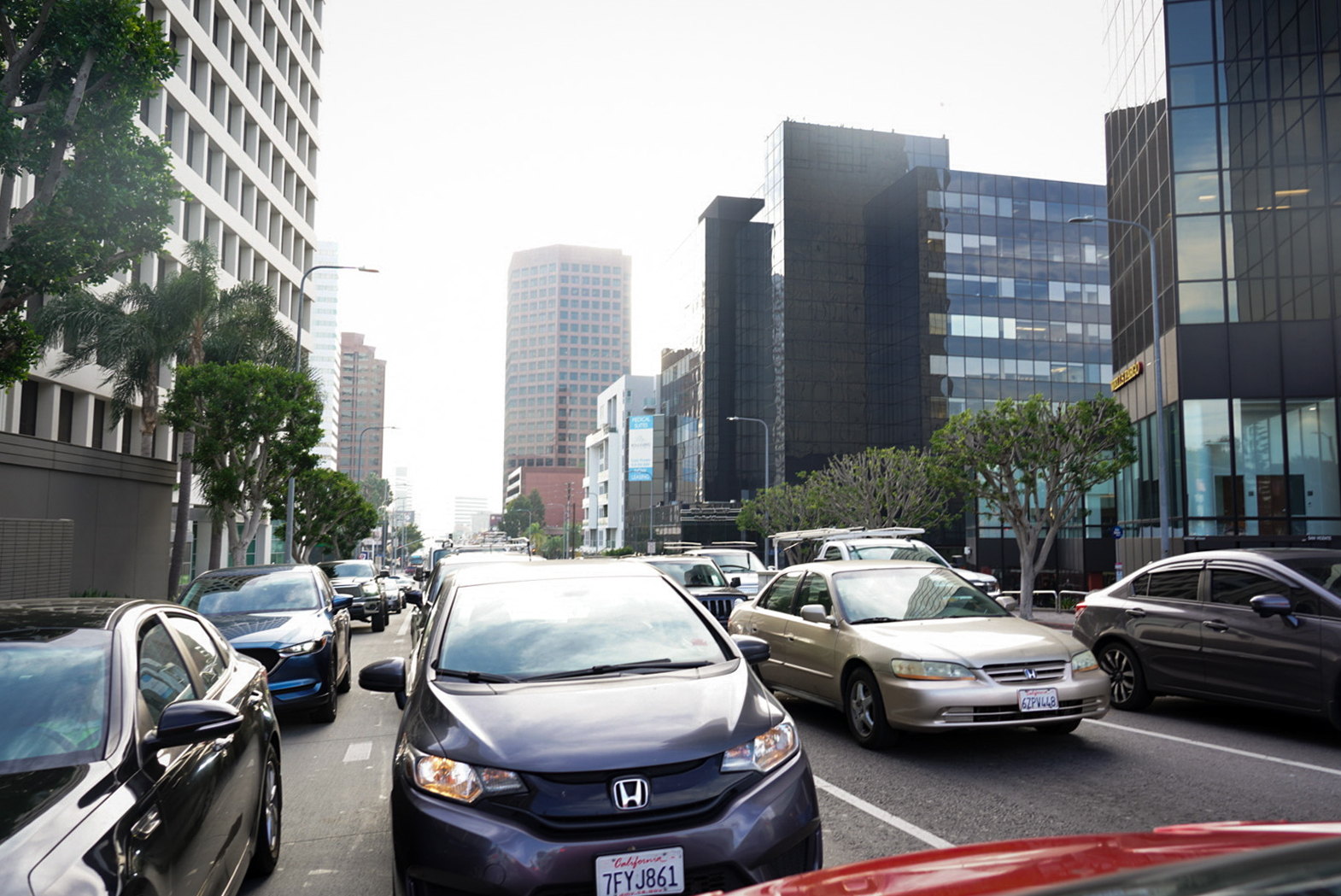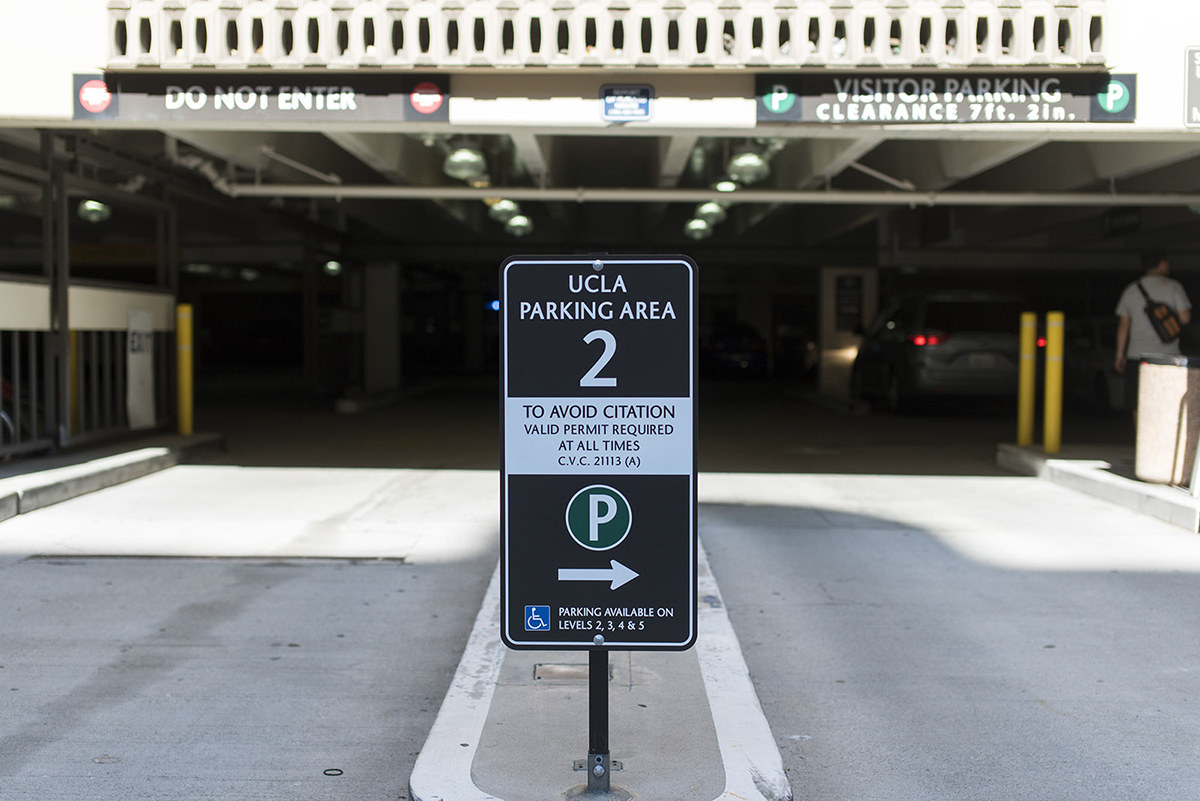Editorial: Eliminating long-term parking permits only harms and inconveniences commuters

By Editorial Board
Jan. 28, 2024 3:18 p.m.
This post was updated Jan. 28 at 8:56 p.m.
A proposal to eliminate the quarterly parking permits has gained traction among UCLA community members, prompting questions over its desired outcomes.
Daily discounted parking is UCLA Transportation’s newest short-term permit parking option. Previously, in addition to long-term permit parking, students were only able to purchase five daily parking passes per quarter.
Since its inception, many commuters – who would otherwise have no reasonable alternative for daily parking – now utilize daily discounted parking. According to UCLA’s 2022 State of the Commute report, over 7,900 students have resorted to daily discounted parking and drive to campus 10 fewer days per month compared to students with the quarterly parking permit.
While UCLA continues to offer long-term parking for students, other institutions such as the Massachusetts Institute of Technology and UC Davis have entirely ditched long-term parking for short-term parking. The decision comes after discovering how the switch from offering long-term parking to only daily parking has decreased pollution and incentivized students’ use of public transportation.
Now, experts and community members at UCLA want to follow suit by abolishing the quarterly parking permit in favor of daily discounted parking with the belief that if students pay every time they park, it will lead them to drive less and utilize public transportation.
The reality is that many commuters will not see this short-term parking as an inconvenience. Commuters will likely see this as an opportunity, considering how the high demand and limited supply of quarterly parking permits have deprived many commuters of finding affordable parking on campus.
The real inconvenience is public transportation in Los Angeles.
Commuters are less likely to favor public transit over automobile transportation because of the greater challenges posed by the public transit systems connecting Westwood to the LA metropolitan area.
According to The Stack from the Daily Bruin, the lack of punctuality and constraining schedules from existing public transit routes near campus have previously negatively impacted students’ participation in learning and extracurricular activities on campus. In fact, buses were late 23% of the time between July 2019 and Oct. 2021, specifically those operated by the Antelope Valley Transit Authority, LA Department of Transportation and City of Santa Clarita Transit.
The travel time involved in Commuter Express Route 573 – which connects the San Fernando Valley and West LA – demonstrates how limited and time-consuming public transportation in LA can be.
For instance, Route 573, southbound service between Chatsworth & Orion and Wilshire & Glendon, has 16 morning trips between 5:30 a.m. and 9:30 a.m. and one afternoon trip at 5:10 p.m. averaging 68 minutes of travel time. Then, Route 573, northbound service between Chatsworth & Orion and Wilshire & Glendon, has one morning trip at 7:12 a.m. and 14 afternoon trips from 2:26 p.m. and 7:01 p.m. averaging 70 minutes of travel time.
Future LA Metro developments such as the Sepulveda Transit Corridor Project will allow commuters and students to become less dependent on vehicle transportation and experience quicker travel times if a convenient alternative is adopted.
The Sepulveda Transit Corridor plans to connect the San Fernando Valley and West LA with a rail line service. If Metro moves forward with Alternative 5, the commute from the San Fernando Valley to UCLA will be reduced to only 15 minutes.
Nevertheless, current student commuters unfortunately will not reap the benefits of the Sepulveda Transit Corridor Project, as it is expected to open around 2033-2035.
Some might argue that the short-term permit benefits commuter students. However, while it is a slight advancement, considering how the high demand and limited supply of quarterly parking permits over the years left many commuters parking insecure.
Regardless if the long-term parking remains in place, commuter students with the long-term permit already bear the burden of increased fees as UCLA Transportation continues to increase fees each year.
In May, UCLA Transportation announced an increase in the quarterly parking permit cost, increasing it by 3.2% each year over the following two academic years, citing a decrease in visitor parking revenue as the motive for the fee increase.
Just before the announcement, in April, the Undergraduate Students Association Council even passed a proposal to subsidize the quarterly parking permit price of $292.93 by $50.
Given both the unaffordable cost of permits and inaccessibility of public transportation for many commuter students, the logical solution to increasing public transit ridership is to invest and build public transit infrastructure that encourages, not forces, individuals to ditch vehicle use.
Removing quarterly parking passes would not realistically increase public transit usage, given that LA public transit is not built to cater to the needs of UCLA commuter students.





